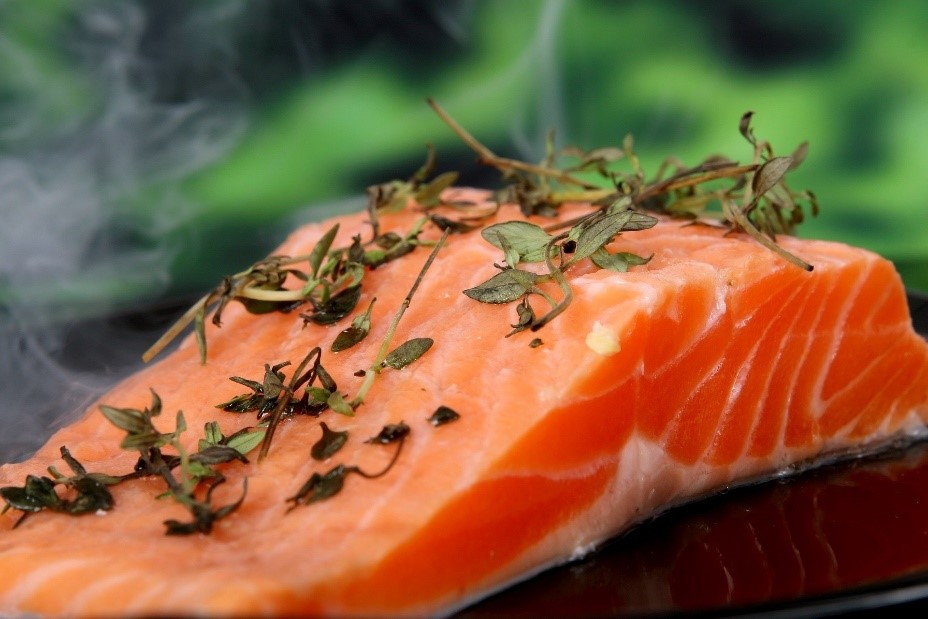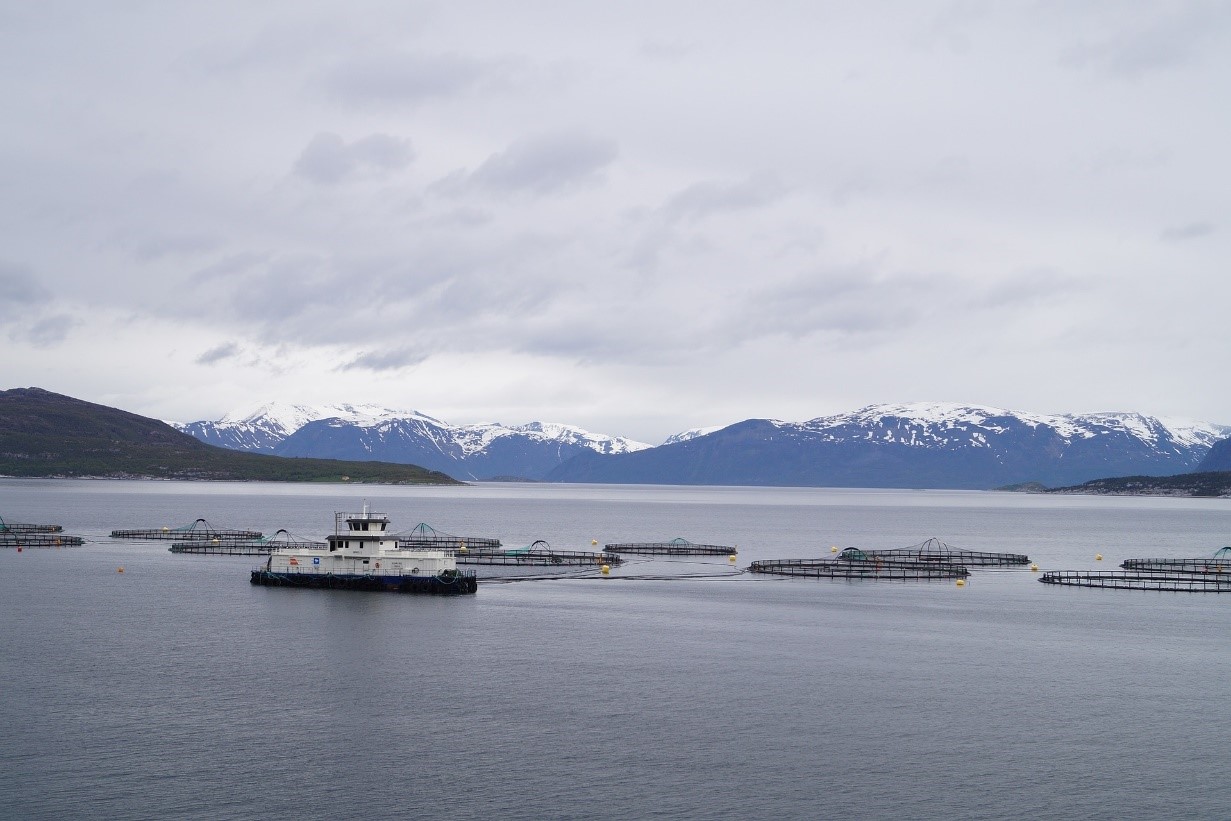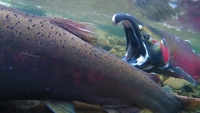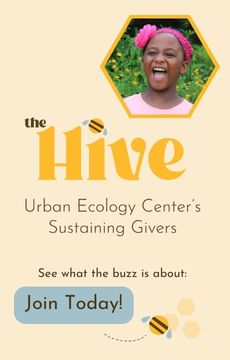People love salmon for many reasons: the flavor, the incredible health benefits, the love of fishing, you name it. In fact, salmon is ranked as one of the most popular types of fish in many countries and production has boomed in the last few decades.
 With this appreciation comes responsibility, or at a minimum, recognition of the impacts that increased fishing and production can have on the natural world. What can be done to make sure we’re enjoying this delectable fish in a sustainable way?
With this appreciation comes responsibility, or at a minimum, recognition of the impacts that increased fishing and production can have on the natural world. What can be done to make sure we’re enjoying this delectable fish in a sustainable way?
Off the coasts of the United States there are five species of Pacific Salmon (Chinook, Coho, Sockeye, Chum and Pink) which are typically wild-caught and the Atlantic Salmon which is farmed.
When considering the question of which is better, farmed or wild-caught, people have varying opinions on which is healthier to eat, and which is more taxing on the environment. I am no salmon expert, but my initial gut reaction has always been that wild-caught is probably healthier to eat and farmed might be more sustainable, but may cause more harm to the environment. The reality, though, is that there are pros and cons to each method and plenty of rabbit holes to go down when exploring each topic.
Salmon farming, or aquaculture, theoretically has a handful of benefits. The industry creates jobs, it allows for year-round production while keeping costs down, and it does not directly take from the wild salmon population. Aquaculture that is not rooted in sustainable practices, however, can be quite harmful. Wild fish species are fed to the salmon, which often leads to overfishing of these species. Sometimes an excessive use of chemicals and antibiotics is present in farms, and fish can actually be harmed by parasites, diseases, and high output of waste materials generated within the farming pens. Captive salmon can also escape and negatively impact the population of wild salmon in the nearby waters.
There is promise in the implementation of inland aquaculture farms, which like the name suggests, are built entirely inland. They are not yet prevalent due to high startup and operation costs, but it is hopeful that they one day could be. Also some farms using more traditional methods have less of a harmful impact on the environment.
There are additional issues with salmon farming (honestly more than I imagined), and I encourage you to reference some of the resources included at the end of this blog in order to get started and maybe fall down your own rabbit hole of information.
 All this negative talk about farming, but wild fisheries aren’t without their own problems, including habitat degradation, loss of environmental protections, the implementation of dams, and a looming threat – climate change. All of these factors, plus others, have led to a decrease in native populations of salmon which in turn makes overfishing to meet our uptick in demand very easy. Fortunately, there are wild fisheries that are dedicated to long-term sustainability and environmental health, as well as the preservation of indigenous peoples’ culture and livelihoods.
All this negative talk about farming, but wild fisheries aren’t without their own problems, including habitat degradation, loss of environmental protections, the implementation of dams, and a looming threat – climate change. All of these factors, plus others, have led to a decrease in native populations of salmon which in turn makes overfishing to meet our uptick in demand very easy. Fortunately, there are wild fisheries that are dedicated to long-term sustainability and environmental health, as well as the preservation of indigenous peoples’ culture and livelihoods.
It seems that the best and most sustainable way to eat salmon is by supporting sustainable wild fisheries, but aquaculture is an unavoidable method of our future so putting resources into making it as sustainable as possible is crucial.
There is no hard and fast right answer and it really all comes down to what we as consumers feel comfortable supporting and how it is balanced within our own lives. For instance, you may choose to order sustainable wild-caught salmon from Alaska, but then are faced with the tradeoff of having it shipped across the country. You may choose instead to buy locally farmed salmon. Do some research, consider how all the factors may affect your health and the health of the species, and hopefully we will be able to continue to support, respect, and enjoy this incredible fish for years and years to come.
Have an opinion or knowledge you’d like to share? We welcome it!
References & Resources
Marine Stewardship Council – https://www.msc.org/
Wild Salmon Center – wildsalmoncenter.org
Monterey Bay Aquarium – Seafood Watch Seafoodwatch.org
Inland Aquaculture –
Human Health aspects –
https://www.cnn.com/2010/HEALTH/01/13/salmon.farmed.fresh/index.html
Indigenous Peoples & farming –
The salmon photo at the top of this article was taken by the Bureau of Land Management and no changes were made (https://creativecommons.org/licenses/by/2.0/).





